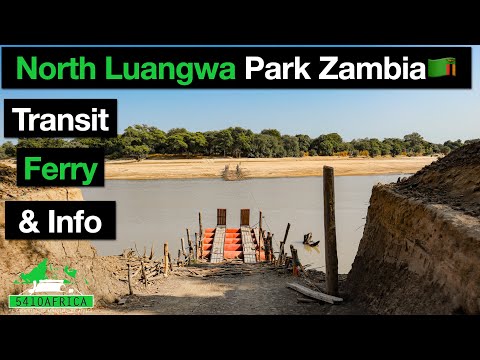
In the vast expanse of Zambia, a country renowned for its rugged terrain and rich wildlife, lies a relatively undiscovered treasure: North Luangwa National Park. Unlike its southern counterpart, South Luangwa National Park, which attracts tourists from around the globe, North Luangwa offers a more secluded and wild experience, making it a perfect destination for those looking to immerse themselves in unspoiled nature.
**Geography and Landscape**
North Luangwa National Park covers an area of about 4,636 square kilometers. It is located in the northeastern part of Zambia and is bordered by the Luangwa River to the east and the Muchinga Escarpment to the west. The park’s landscape is diverse, featuring dense forests of mopane trees, open grasslands, and riverine woodlands. This variety not only creates a picturesque setting but also supports a wide range of wildlife habitats.
**Wildlife and Biodiversity**
The park is best known for its robust populations of iconic African wildlife. It is one of the few places in Africa where visitors can see large herds of buffalo alongside prides of lion, which are often seen in pursuit or resting after a hunt. North Luangwa is also home to other predators such as leopards and spotted hyenas.
One remarkable conservation success story here is that of the black rhinoceros. Reintroduced into the park after being poached to extinction in Zambia during the 1980s, these magnificent creatures are once again roaming freely under strict protection measures.
Elephant enthusiasts will find North Luangwa’s herds particularly impressive. The park’s elephants are known for their size and have generally been less disturbed by human activity compared to those in more frequented parks. Additionally, over 400 bird species have been recorded in this region, making it an exceptional spot for bird watchers.
**Conservation Efforts**
Managed by the Frankfurt Zoological Society (FZS) with close cooperation from Zambia’s Department of National Parks & Wildlife (DNPW), conservation efforts in North Luangwa focus on preserving its ecosystems while combating poaching. These efforts ensure sustainable biodiversity while supporting anti-poaching units and community outreach programs that educate surrounding communities about the benefits of wildlife conservation.
**Tourism Experience**
Tourism in North Luangwa is deliberately limited to preserve its untouched beauty. There are only a few permanent lodges within the park boundaries; however, seasonal bush camps provide accommodation during dry months when safaris are most popular. Unlike many other parks where self-drive safaris are common, here guided walking safaris led by experienced professionals offer unique insights into bush tracking techniques and animal behaviors.
Excursions in North Luangwa tend to be highly personalized due to fewer visitors at any given time. This exclusivity affords guests intimate encounters with nature sans crowds found in more accessible parks.
**Getting There**
The remoteness of North Luangwa adds to its charm but also makes access somewhat challenging. Most visitors fly into Mfuwe International Airport from Lusaka or other major international hubs before taking a smaller plane or arranged transfer into the heart of North Luangwa.
**Conclusion**
North Luangwa National Park remains one of Africa’s best-kept secrets—a truly wild paradise that promises awe-inspiring encounters with Africa’s majestic flora and fauna without throngs of tourists typically seen elsewhere.
Whether you’re an avid naturalist seeking a profound connection with nature or simply looking for peace far removed from bustling safari routes, this secluded sanctuary offers pristine landscapes filled with dramatic wildlife sightings waiting just off-the-beaten-path.
